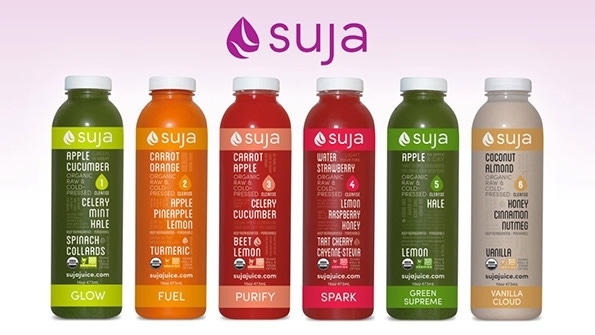We asked Jeff Church, CEO and co-founder of Suja, about the early challenges that went into making the brand a success story.

Suja has become one of the fastest-growing organic juice brands ever. But just a few years ago, co-founders Eric Ethans and Annie Lawless were hand-delivering Igloo coolers full of the cold-pressed juice to eager local customers, without a name or a scalable business model. Since cold-pressed juice is unpasteurized to preserve nutrients, it normally only has a shelf life of just three to four days, making it unfit for store distribution.
It wasn't until co-founder James Brennan, one of the company's passionate early customers, introduced the two entrepreneurs to Jeff Church that a larger vision began to take shape. Church, a Cleveland native and Harvard Business School graduate, came across high-pressure processing (HPP), a method of killing pathogens without heat, which extends the shelf life of cold-pressed juice tenfold without altering its taste.
Now, Suja ranks at No. 3 on Forbes' 2014 list of America's Most Promising Companies. We asked Church, who has been co-founder and CEO of Suja since 2012, five questions about the initial challenges the juice operation faced on its way to becoming a major success story.
What do you wish you would’ve known when you first started out in the natural products industry?
Church: We understood the momentum that was behind the organic and non-GMO movements, but we underestimated the growth of the fresh-pressed, HPP juice category. In less than two years, we have outgrown three production and distribution facilities while proliferating to over 40 SKUs. This is an aspect of the business that none of us anticipated when launching into the industry.
Once Suja began to take off, what are some challenges you faced with distribution, supply, cost, etc?
Church: Every week we source fresh, organic produce from farmers in California based on demand. As our company scaled to become nationwide and production increased from a few hundred bottles a week to a few hundred thousand bottles per week, we had to spend time educating our customers on what it means to buy a fresh juice with a shorter shelf life than the pasteurized juices most buyers were familiar with.
To what do you attribute Suja’s success as a brand?
Church: Our success is attributed entirely to the team's dedication since day one. Each bottle of juice is viewed as the “hero” of our entire group's efforts. We have a dedicated team of chefs working to keep the taste profiles consistent as we process thousands of pounds of fresh produce every day. The Suja culture allows us to remain agile while simultaneously growing to become one of the country’s top juice brands.
What’s been your biggest learning experience since launching Suja?
Church: Launching Suja and experiencing the early demand for our products taught us how powerful the health and wellness category is. Many doubted the sustainability of an $8.99 juice product on the market. We quickly learned that the demand for consistent, healthy products was here to stay and it was growing fast.
Has the citrus greening outbreak in the U.S. impacted Suja at all in terms of sourcing and supply?
Church: No, fortunately Suja was able to develop great relationships with many organic produce suppliers early on. We have learned a lot about organic seasonality and availability. Retaining and supporting our relationships with the farmers is one of our most important aspects of growth.
About the Author(s)
You May Also Like




